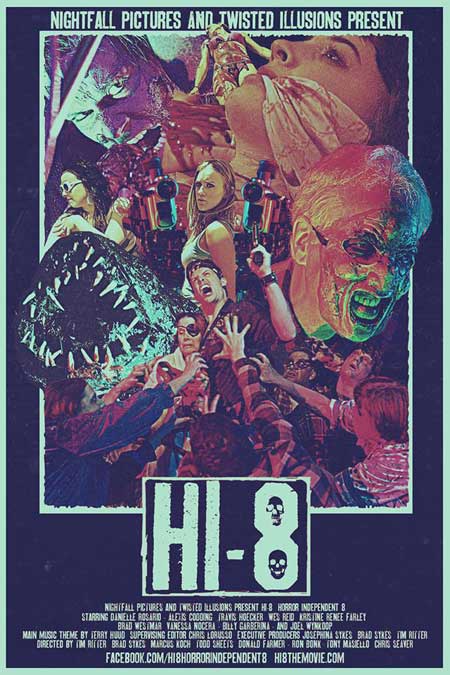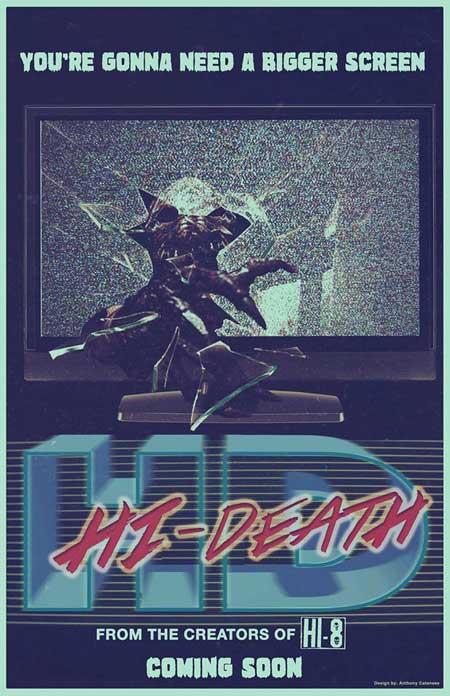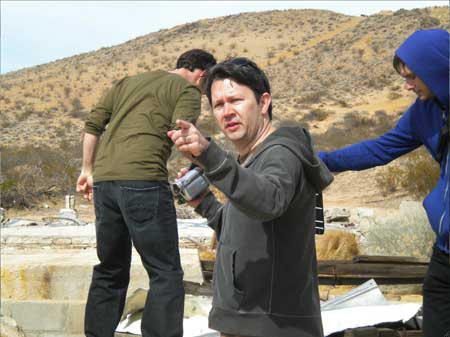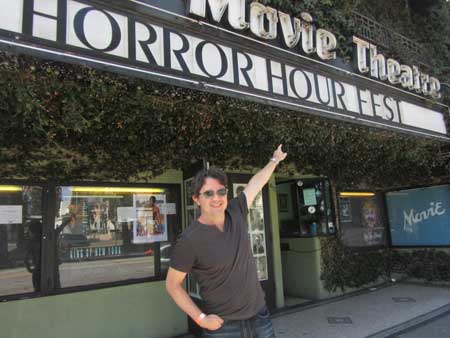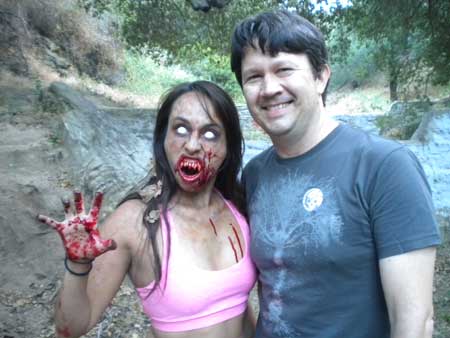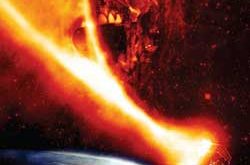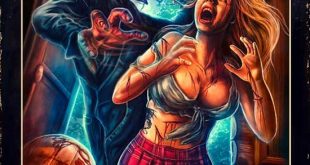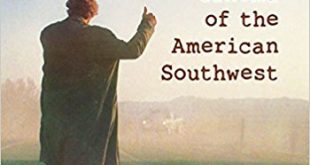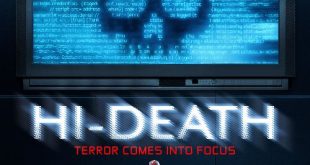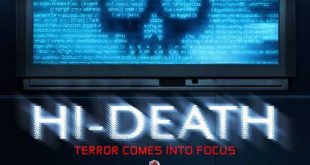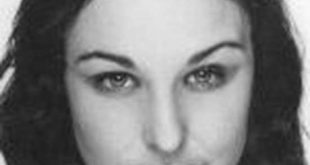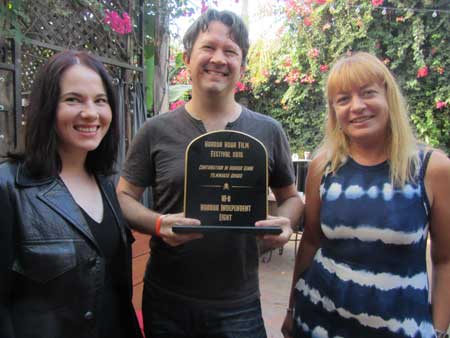 I have always been a huge fan of Brad Sykes’ work. The guy is super talented and one of the hardest-working guys in the film business today. He’s responsible for a ton of great horror films such as Camp Blood, Death Factory, and one of my all-time favorite movies, the criminally underrated Goth. He is a busy guy as not only does he write and direct, but he has also been known to act, produce, and do special effects as well.
I have always been a huge fan of Brad Sykes’ work. The guy is super talented and one of the hardest-working guys in the film business today. He’s responsible for a ton of great horror films such as Camp Blood, Death Factory, and one of my all-time favorite movies, the criminally underrated Goth. He is a busy guy as not only does he write and direct, but he has also been known to act, produce, and do special effects as well.
He most recently teamed up with other horror icons such as Tim Ritter, Todd Sheets, and several others for the totally awesome horror anthology Hi-8 which features his segment “The Scout” and he is currently filming another anthology with some of the same directors entitled Hi-Death (cheap plug, my wife and I star in Tim Ritter’s segment “Dealers of Death” for the film). I recently had the pleasure of speaking with Brad and we talked about a number of things.
Todd Martin: When did you decide that you wanted to be a filmmaker?
Brad Sykes: I never consciously made that decision; it was a hobby that turned into an obsession that became a career. When I was 14 or 15, I first started cranking out shorts with my friends on Hi-8 video. I got more serious about film making in high school and started making feature length projects. But I didn’t really consider it as a career path until closer to high school graduation, when I started looking at the film programs at various colleges. I ended up attending Boston University’s film program for four years and then moved to Los Angeles immediately afterward.
TM: What was your first job in the film industry? Was it a good experience?
BS: My first job was an internship on Kiss the Girls, starring Morgan Freeman. I was a production assistant on the film, which was shooting in Los Angeles throughout the summer of 1996, between my third and fourth year of film school. It was a very eye opening experience. I learned set etiquette, got to experience classic studio film making (at the Paramount lot) and location shooting, traveled all over L.A., and met some very cool people. I also landed my first paid screenwriting job while working on KTG, from one of the craft service guys who needed a rewrite on his horror script!
TM: If you weren’t working in film what would you be doing right now?
BS: I would probably be a novelist or film critic of some kind. My interest in film making really goes back to storytelling. Before I ever picked up a camera, I was writing short stories and film reviews, some of which were published in the local papers. I still write the occasional article for various film magazines and websites.
TM: What work of your own are you most proud of and why?
BS: Can I pick more than one? The first film that comes to mind is Plaguers, a sci-fi/horror movie I wrote and directed. My wife/producer Josephina and I made that through our production company, Nightfall Pictures, and it was the first time I’d really had adequate filmmaking resources. I think the end result came fairly close to how I had envisioned it and we had a lot of success with the film at various festivals. Of my earlier work, I’m also proud of Mad Jack, a desert road thriller, and Goth, which is more of a psychological, transgressive horror film.
TM: Is there any movie that you have done that you aren’t particularly fond of? What would you have done differently?
BS: I have more than one of those too! The Bewitching, for example, didn’t turn out the way I had hoped. It was a supernatural thriller involving a haunted theatre, and it was just too ambitious for its low budget. We didn’t have the resources to properly do the ghost effects, and there were other issues too during production. The location was a working theatre/rehearsal space in Hollywood and had been double booked, so we would often have to compete with acting classes for the spaces we needed to shoot in, or have performances going on just below us, which made sound recording very difficult. In post, the editors that were hired (without my involvement) made the whole thing even worse. It’s one of my titles that is pretty hard to find nowadays, and that’s okay with me.
TM: Who are some of your favorite people to work with?
BS: I was fortunate to work with genre icon Linnea Quigley on my first movie, Scream Queen. She was really cool and supportive throughout the shoot. On Plaguers, I got to direct one of my favorite actors, Steve Railsback. I had written the role for him and he was really committed not only to his role, but to the entire film. Danielle Harris was also very professional and cool to work with on Burying the Ex, a short film I produced which was later expanded into a feature.
TM: If you could work with anyone on a film that you haven’t worked with yet who would it be and why?
BS: I don’t usually think in those terms. There are so many talented actors, cinematographers, effects artists out there, and every film has its own circumstances. I always just try and find the best collaborators I can for each project. It might be someone I’ve worked with for ten years, or it might be someone I’ve never worked with before. It depends on the situation.
TM: Who are some of your influences?
BS: As a writer/director, some of the major ones would be: Romero, Carpenter, Argento, William Friedkin, Michael Mann, Paul Schrader, Roman Polanski, David Lynch, and Walter Hill.
TM: What is your favorite movie of all time?
BS: That’s a tough one. The original Dawn of the Dead is surely in my top ten, and probably my favorite horror movie of all time. Sorcerer is huge. The Keep, Thief, Manhunter. Streets of Fire. The Hitcher, Near Dark. Blue Velvet, Mulholland Dr. Natural Born Killers. Clearly, I’m not big on lighthearted comedies!
TM: What would you say is the scariest movie of all time?
BS: A lot of people point to The Exorcist, but I would go for The Texas Chainsaw Massacre. The Tobe Hooper original, of course. It has a genuinely nightmarish quality and never gets any easier to watch.
TM: What advice would you give to anyone wanting to break into the film industry?
BS: Thanks to the internet, there are more ways to “break in” than ever before. Everyone with a cell phone and a YouTube channel can call themselves a filmmaker. Some of these people are genuinely talented and have a unique voice, but a lot of them just want instant gratification, likes, shares, etc. with no real thought or effort behind what they’re putting out there. Too many projects in general nowadays put publicity and web presence ahead of actual filmmaking. So my first piece of advice would be, if you’re really serious, to study your craft before making that first short, and make at least a couple of shorts before attempting a feature.
The real challenge, however, is not getting your foot in the door or getting noticed, but staying in the game and having longevity, through the inevitable ups and downs. I have personally seen major changes in production and distribution since I’ve been directing features. Ask any indie filmmaker who’s been doing this for a while, like I have – it’s hard work, and isn’t getting any easier. You really have to love filmmaking – and movies, period – to continue to work and thrive in this industry. Those who are not in it for the right reasons, expect overnight success, or give themselves “a year to make it” will eventually fall by the wayside.
TM: What projects are you currently working on?
BS: Right now, we’re in production with Hi-Death, the sequel to the horror anthology “Hi-8”, which was very well-received when it came out in 2014 and recently won an award at the Horror Hour Film Festival here in L.A. I am executive producing Hi-Death with my producer, Josephina, as well as writing and directing one segment and the wraparound. We have some of the filmmakers from Hi-8 back to contribute segments, like Tim Ritter and Todd Sheets. It’s coming along well and we’re looking to finish it later this year.
TM: Anything you’d like to add or anybody you’d like to give a shout out to?
BS: I’d like to thank you and Horrornews.net for all the cool questions. If anyone would like to find out more about Hi-Death and my other films, please check out the Nightfall Pictures FB page
Special thanks to Brad for taking the time out of his busy schedule to talk to me! It was an honor to get to interview him!
 Horror News | HNN Official Site | Horror Movies,Trailers, Reviews
Horror News | HNN Official Site | Horror Movies,Trailers, Reviews
